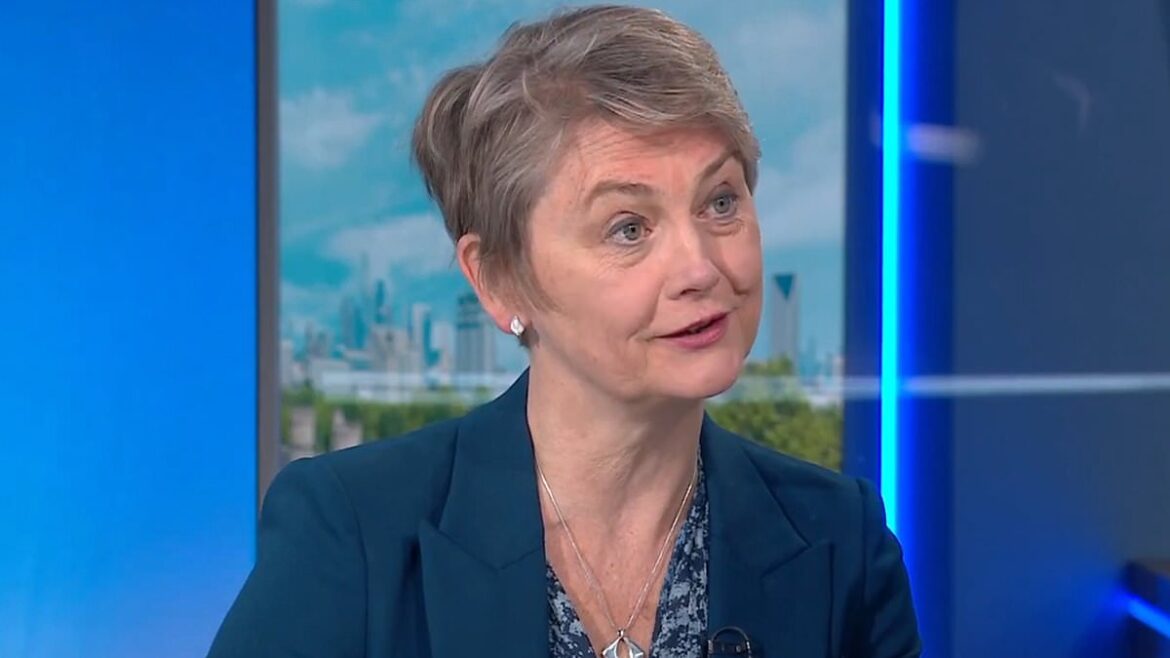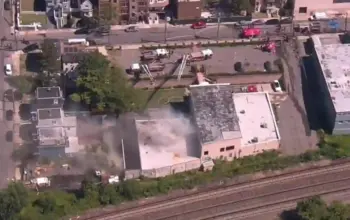The debate over how the UK handles migrants crossing the Channel in small boats is heating up again.
Labour, under mounting pressure to close asylum hotels, is now exploring alternative options, including warehouses and other industrial sites, to house asylum seekers temporarily.
Home Secretary Yvette Cooper highlighted the issue today, saying the government is reviewing “military and industrial sites” as potentially more suitable locations for migrant accommodation.
Warehouses, she added, are among the possibilities under consideration to ease the financial burden on taxpayers of housing migrants in hotels.
Sir Keir Starmer Pushes for Faster Action
The announcement comes ahead of Prime Minister Sir Keir Starmer’s emergency meeting with Cabinet ministers, aimed at accelerating the government’s response to Channel crossings.
Downing Street confirmed that ministers would discuss “better forms of accommodation” and strategies to hasten the closure of asylum hotels.
A spokesperson for the Prime Minister said all viable options are being reviewed, including modular buildings on industrial and ex-military sites.
These buildings can be scaled up quickly to accommodate larger numbers, the official explained.
No10 also emphasized that the government fully expects the first returns of migrants to France this month under the “one in, one out” deal, though Ms Cooper herself stopped short of guaranteeing deportations would begin immediately.
Shrinking the Asylum System
Speaking to LBC, Cooper stressed that the ultimate goal is to reduce the size of the asylum system.
“We actually need fewer people in the asylum system in the first place,” she said. “That has to be at the core of this.”
She added that while alternative sites such as military or industrial locations are being explored, practical plans will be shared only when ready.
“I’m doing the opposite of the previous government,” she explained, noting that prior announcements often failed to materialize, undermining public trust.
Tackling Illegal Crossings “Further and Faster”
Sir Keir told Cabinet ministers that tackling migration requires speed and decisiveness.
According to a readout from Tuesday’s meeting, the Prime Minister acknowledged public frustration at illegal crossings and asylum hotels in local communities.
The meeting is expected to cover collaboration with French authorities, cracking down on illegal work and pull factors, using digital ID options, accelerating hotel closures, improving accommodation alternatives, and advancing returns of those with no right to stay.
Delays in the France Pilot Scheme
The “one in, one out” deal with France, announced in July, was initially expected to take effect within weeks.
However, despite some detentions in Dover starting early August, the first returns are now expected “later this month,” according to the Home Secretary.
Since the deal’s ratification, over 3,500 migrants have arrived in dinghies, setting new records for Channel crossings this year.
Cooper emphasized that the pilot scheme will scale gradually and remains a work in progress, contrasting it with the Conservative government’s costly and limited Rwanda plan.
Closing Hotels and Reforming Family Reunions
Labour aims to accelerate the closure of asylum hotels.
Cooper said it could happen sooner than the government’s self-imposed end-of-Parliament deadline, potentially years ahead.
Yet she declined to provide a detailed timetable, citing multiple dependent factors.
Meanwhile, the Home Secretary announced that new applications for the refugee family reunion route will be temporarily suspended.
This will align refugee applications with standard family migration rules until new reforms are introduced, with full details expected by spring next year.
Crackdown on International Students and Asylum Claims
The Home Office is also targeting international students who claim asylum after their visas expire.
Cooper revealed that up to 15,000 students do this annually.
For the first time, the government will directly contact students and their families by email or text, warning them to leave if they lack legal status.
Nearly 10,000 students and dependents were contacted last week, with tens of thousands more expected to receive guidance in the coming weeks.
The message makes clear that asylum claims without merit will be swiftly refused.
Tory Criticism and Political Pressure
The Conservative Party, led by shadow Home Secretary Chris Philp, criticized Labour’s handling of the situation.
He argued that Labour has allowed illegal crossings to surge and accused the government of turning small boats into “one-way tickets” to taxpayer-funded hotels.
Philp highlighted that the France pilot, announced in July, has yet to see any returns.
He insisted that stricter enforcement is needed to prevent further illegal crossings.
Pilot Scheme Details and Future Outlook
Under the UK-France agreement, migrants arriving in small boats can be returned to France while an equal number of genuine asylum seekers are allowed entry.
Cooper told MPs that the first detentions began immediately after the treaty’s ratification, and returns are expected to start this month.
Applications have also opened for the reciprocal legal route, with strict security checks in place.
Cooper emphasized that the pilot has no cap on numbers and will be gradually expanded over time.



